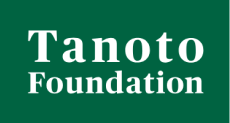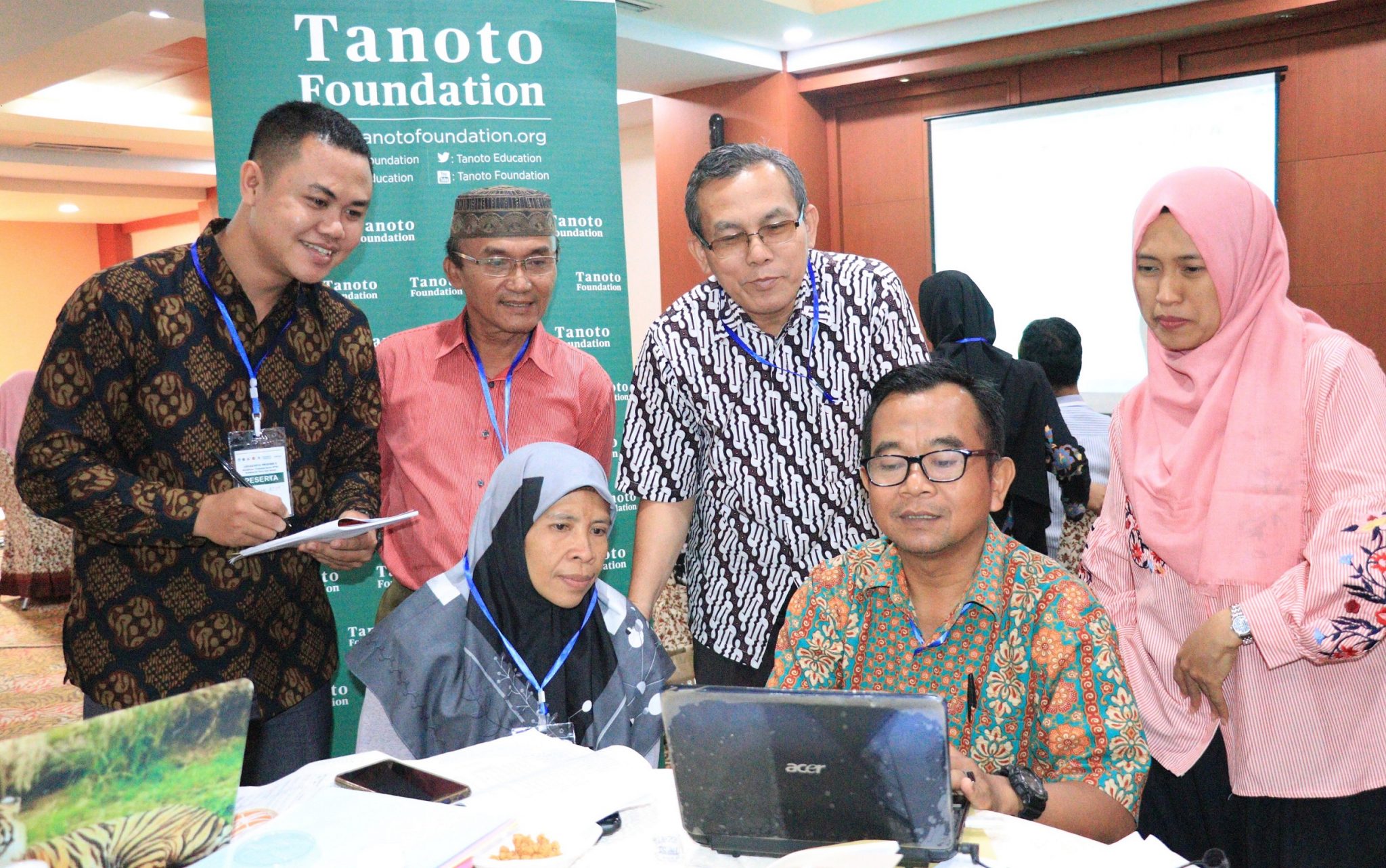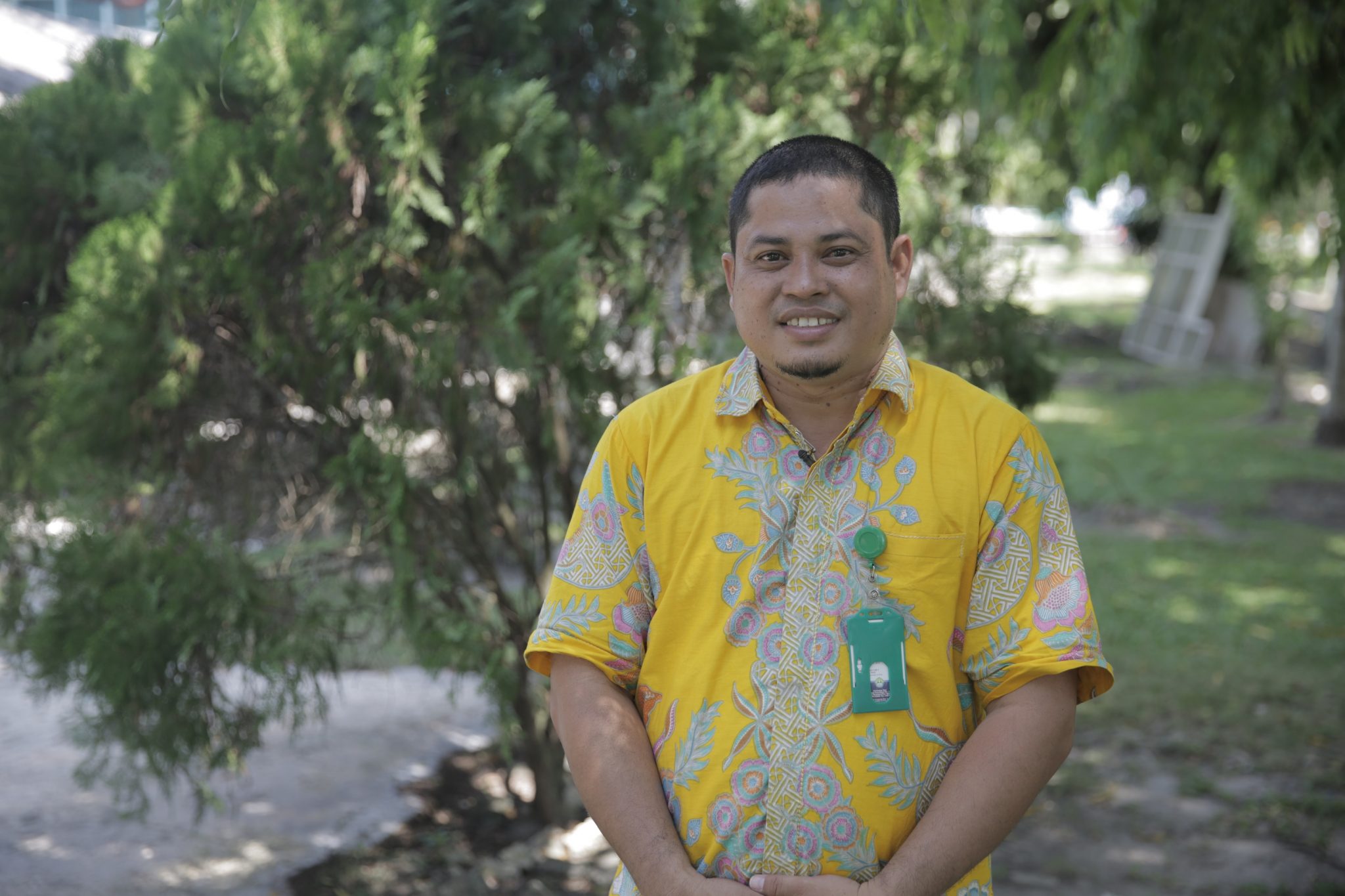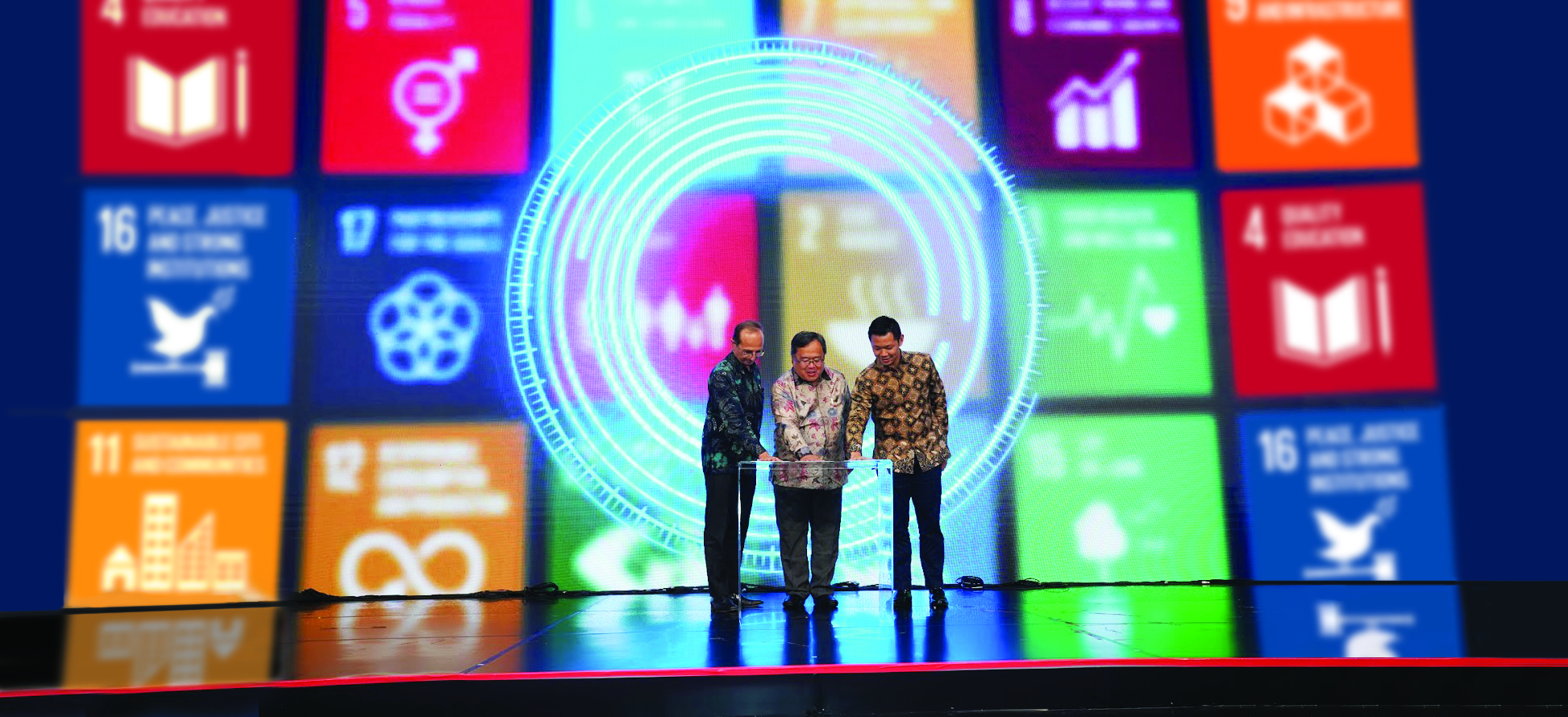The better qualified a teacher is, the greater the impact on student success.
Teachers therefore have the noble responsibility of shaping the future of the nation, said Nadiem Makariem, the Indonesian Minister of Education and Culture in his 2019 National Teachers’ Day speech.
“You should want to take students out of the class to learn from the world around them, because in the real world, the ability to work and collaborate with others is what will determine success – not the ability to memorise,”
Nadiem Makarim.
Tanoto Foundation has long made it one of its missions to improve the quality of teachers in Indonesia through PINTAR, its education improvement program. A main component of PINTAR is training teachers to improve their teaching capacity.
PINTAR focuses on introducing the MIKiR (Experiencing, Interaction, Communication and Reflection) learning concept. With MIKiR, the teachers play a facilitator role in the classroom, getting their students to actively interact and communicate with their peers during lessons.
Below are some examples of teaching with MIKiR:
Encouraging creativity in the classroom
People who enter Tri Heni Endang Rachma Pamiluwati’s fourth-grade class at SDN 25 Pekanbaru in Riau might be confused at first – there are always objects which look out of place in her classroom.
One day, it is rice, sugar, flour and measuring scales. On another day, you might see caterpillars, tadpoles and butterflies.
Getting her students to bring these unusual objects to class is all part of the teacher’s efforts to encourage them to learn actively – the rice, sugar, flour and measuring scales are meant to teach the students about lengths and weights, for example.
As a Regional Facilitator for Tanoto Foundation’s PINTAR program which aims to improve the quality of learning in Pekanbaru, Tri Heni rarely runs out of ideas for creative lessons in the classroom, especially after she has attended a MIKiR training session.
“The MIKiR method lets teachers teach lessons while the children experience and observe. After this, the children deliver the results of their observations through reflecting with their friends,”
Tri Heni.
Lecturing is not teaching
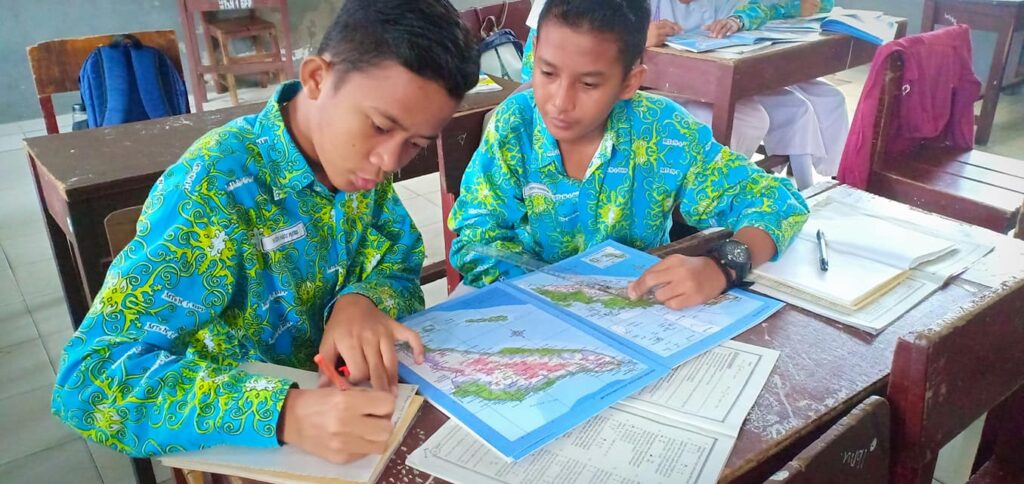
There has been a noticeable change in the students’ attitudes at MTsN 1 Balikpapan in East Kalimantan. The students are always enthusiastic to learn, regardless of which lesson is being taught.
Sri Rezeki, a teacher at the school, says this has resulted from the teachers applying MIKiR in class.
“Before, when teachers would just lecture, the students were often sleepy and bored,” she said.
However, teachers do have to put in more work when it comes to preparing lessons with MiKiR concepts, she said.
Using MIKiR to train future teachers

The MIKiR method is also used to teach students at Tanoto Foundation’s partner teacher training institutions (LPTK), including Sultan Thaha Saifuddin State Islamic University (UIN) in Jambi.
An example is when Kiki Fatmawati, a science instructor, asked the students to bring plants into the class.
The class was divided into groups with seven members each, and tasked to identify whether the plants they were assigned were dicotyledonous or monocotyledonous. This was followed by detailed discussions on how the plants breed.
This method has proven to be effective, as the students’ understanding of the material is better.
“MIKiR makes it easier for us to understand the lesson because we are able to see and feel the plants directly,” said Zulfitrah, a student at UIN.

